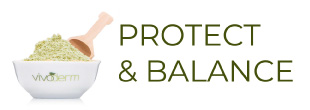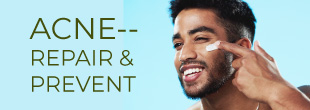The Healing Properties of Aloe Vera
By: Van Le |
The healing power of Aloe vera has been known for decades, dating back to the Egyptian era when it is believed that Cleopatra used it as a skincare remedy, and found in Greek history when it is believed that Alexander the Great used it to care for his army after battles. Today, Aloe vera is widely used in many cosmetic products, anti-inflammatory creams, and some grocery store shelves even boast Aloe vera juice.
Aloe vera is a member of the succulent (water-retaining) plant family, and is also known as “lily of the desert” since researchers believe it originated in Africa. There are over 250 known species of Aloe vera, and are relatively easy to care for, therefore increasing its popularity. The spokes of Aloe vera plants are filled with a gel-like substance that is filled with a combination of enzymes, vitamins and minerals. Dermatologists and cosmetic companies often extract the gel for use in their products. Aloe vera is also considered an alternative treatment for high blood pressure and intestinal problems.
Aloe vera is a popular choice for the treatment of sunburn, since it contains a variety of enzymes and amino acids that are anti-inflammatory and speed up the skin’s healing process. Many after-sun moisturizing creams contain Aloe, and for those who have access to actual Aloe plants, the gel can be applied directly on the affected area.
Aloe vera is a common ingredient in many cosmetic products, particularly anti-aging and anti-acne products due to its ability to generate healthier skin. The combination of enzymes, vitamins and minerals in Aloe vera products increases oxygen flow, which toughens the skin tissues and provides protection from pollutants and dirt. It also moisturizes the skin and increases its elasticity, which reduces wrinkles and signs of aging. Used in conjunction with exfoliating products, Aloe vera can help control acne by helping shed dead skin cells and reduce redness.
Once Alternative, Now Mainstream
Not so long ago, herbal products or foods deemed “natural” were considered less than desirable by the mainstream public. The Industrial Revolution not only changed the face of production and how we worked, it changed what we ate and used for our health. Mass-produced, new chemical compounds in fancy packaging quickly replaced the ‘old-fashioned’ herbal remedies used by our grandmothers.
While Aloe vera never completely fell out of favor, by the 1970’s and 80’s use of medical plants and herbs to treat ailments and skin conditions was considered unconventional and provided mostly by naturalists and alternative therapists.
In the new millennium, science and technology have not proven to be the miracle we were expecting. Today, modern science is re-discovering what our already ancestors knew. Aloe vera and similar natural treatments provide vital healing, nourishing and regenerative qualities that no chemical lab can re-create.




